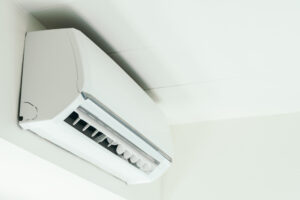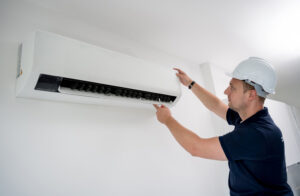Commercial buildings in Glendale lean heavily on their HVAC systems during summer. With high temperatures stretching from morning to night, these systems carry a heavy load to keep tenants, customers, and employees comfortable. When a system fails without warning, it doesn’t just disrupt indoor comfort; it can stall workdays, frustrate clients, and increase operating costs. Business owners often find themselves scrambling to get repairs completed quickly during peak season, when technicians are already booked and supply chains slow everything down.
The good news is that many emergency HVAC issues can be avoided with the right preventive steps. By monitoring equipment performance and taking pre-season actions, businesses can reduce the chance of major system failures. Putting in time upfront means fewer disruptions, steadier energy use, and less stress when the hottest days hit Glendale. Keeping cool shouldn’t come at the cost of unexpected expenses or downtime. The sooner these steps are added to a maintenance plan, the more stable building operations will be during summer’s peak.
Schedule Regular Maintenance
One of the most effective ways to avoid emergency HVAC repairs is regular maintenance. Many commercial buildings push their systems hard during peak summer months, but they don’t always get checked when things seem to be working fine. Ignoring routine service can quietly allow small issues to grow. With time, these minor faults can turn into system-wide failures, leading to unexpected breakdowns during high-demand periods in Glendale.
Scheduling maintenance ahead of the season helps catch problems early. It also gives technicians time to correct any developing issues before they lead to shutdowns. Maintenance appointments might not seem urgent when everything appears to be running, but they often prevent the types of emergencies that stop operations at inconvenient times.
Here are some key components that should be inspected regularly:
– Air filters: Dirty or clogged filters can restrict airflow and make the system run longer and harder than necessary.
– Coils: If coils are dirty, they can’t transfer heat effectively, which reduces cooling power and forces the system to overwork.
– Electrical connections: Loose wiring, worn contacts, or overheating components can lead to sudden power failures or electrical shorts.
– Drain lines: Blocked drains can cause moisture to back up, leading to water damage inside the building.
– Refrigerant levels: Low refrigerant can point to leaks and a loss of cooling performance.
Addressing these areas before summer is in full swing means fewer surprises mid-season. Think of it like regular oil changes on a vehicle—you don’t wait until the engine light flashes to take action.
Upgrade to Smart HVAC Systems
Smart HVAC setups are becoming more common across commercial buildings, and for good reason. They offer added control, better monitoring, and quick alerts when something isn’t working as it should. These upgrades can significantly reduce the risk of emergency repairs by giving building managers and service professionals the ability to respond to problems faster.
Traditional systems often don’t signal any issues until there’s a complete stoppage or drop in performance. With smart systems, alerts can be triggered when minor irregularities are detected like airflow changes, temperature inconsistencies, or equipment strain. These early warnings often give technicians enough time to make simple fixes before pressure builds and equipment fails altogether.
For commercial HVAC systems in Glendale, using smart technology during the high-demand summer months adds an extra layer of reliability. Some systems even include learning algorithms that help the system adjust cooling based on usage patterns in different rooms or zones. For example, if foot traffic is heavier in certain parts of the building in the afternoon, the system can adjust airflow automatically to keep things consistent.
The other major benefit is visibility. Smart systems let building managers see what’s happening without waiting for complaints from staff or customers. When operations run smoother all season long, there’s less worry about surprise repairs interrupting business when it matters most.
Educate Staff on Basic Troubleshooting Steps
Even the most advanced HVAC system in Glendale can run more smoothly when staff knows what to look for. Getting basic troubleshooting knowledge into the hands of daily users helps catch minor concerns early, potentially stopping something small from becoming a full-scale breakdown. While it’s never the staff’s job to fix an issue, they should know when to raise the flag before a situation gets worse.
Training doesn’t have to be technical to be effective. A short session focused on signs of stress or malfunction can go a long way. For example, if a staff member knows how to recognize new noises, changes in airflow, or temperature swings in different zones, they can report it before the system loses performance entirely. Even something as small as unusual smells from vents might point to a clog or moisture issue that needs fast attention.
Here’s a quick list of basic steps staff can follow when spotting HVAC concerns:
– Listen for new or loud noises like rattling, buzzing, or banging.
– Monitor room comfort — if one office or area always feels too warm or stuffy, something could be off in that zone.
– Check thermostats for error codes or blank screens, which could mean a loss of communication or power.
– Look for pooled water around vents or machinery, a possible signal of a blocked drain.
– Report equipment that constantly cycles on and off or doesn’t seem to reach the desired temperature.
Having a simple plan in place for staff reports can streamline communication with our technicians when a real inspection or repair is needed. Even something as routine as logging problems in a shared digital note can help get attention quickly to the right area.
Plan Around Glendale’s Peak Season HVAC Load
It’s not enough for an HVAC system to be functioning — it has to be ready to perform when demands rise. Glendale’s summer heat can strain systems in ways normal operation doesn’t account for. Business owners often find their units failing during long highs in temperature because cooling needs suddenly spike. Planning for that load instead of reacting to it can protect operations and avoid unscheduled repairs.
An early-season assessment helps estimate whether the current setup can handle upcoming conditions. This includes checking overall system capacity, airflow distribution, and areas of the building that get more sun exposure or see more foot traffic. If any part seems borderline, adjusting early can avoid surprises down the road.
As part of this planning process:
– Review cooling patterns with building managers or maintenance staff.
– Make adjustments to airflow, zoning, and thermostat programming to match real-time building use.
– Replace outdated or struggling parts if inspection shows signs of wear from past seasons.
– Set guidelines for cooling expectations and temperature settings to keep strain manageable.
Backup planning also matters. Even the best system can get tripped up by extreme heat or a mechanical failure. That’s why some businesses choose to create response plans that include emergency contact procedures, airflow alternatives like portable units for high-traffic areas, or restricted use of certain zones during repairs. The goal is to stay ready, not stuck.
Keep Commercial HVAC in Glendale Working Without Disruption
Hundreds of small cooling decisions happen behind the scenes of every successful summer in Glendale. When commercial HVAC systems work without interruption, staff stays productive and visitors stay comfortable. None of that happens by luck. Reliable performance depends on having a plan, following it early, and staying ahead of the weather.
From simple training to smart updates and seasonal inspections, these steps help prevent the stress of last-minute service calls. Business owners who make HVAC planning part of their routine can count on fewer problems during peak season, along with safer, steadier building conditions.
Investing time before the season hits full swing leads to cooler days when it matters most. Long days don’t have to mean long disruptions — not when systems are ready to handle the pressure. Summer in Glendale doesn’t let up, so your HVAC system shouldn’t either.
As you plan ahead to tackle peak summer demands, consider how a well-maintained system can keep your building comfortable and running smoothly with the support of Great American Air Conditioning. Learn how our commercial HVAC in Glendale solutions can help maintain consistent performance. For a quick estimate or to book a service visit, please contact us today.






